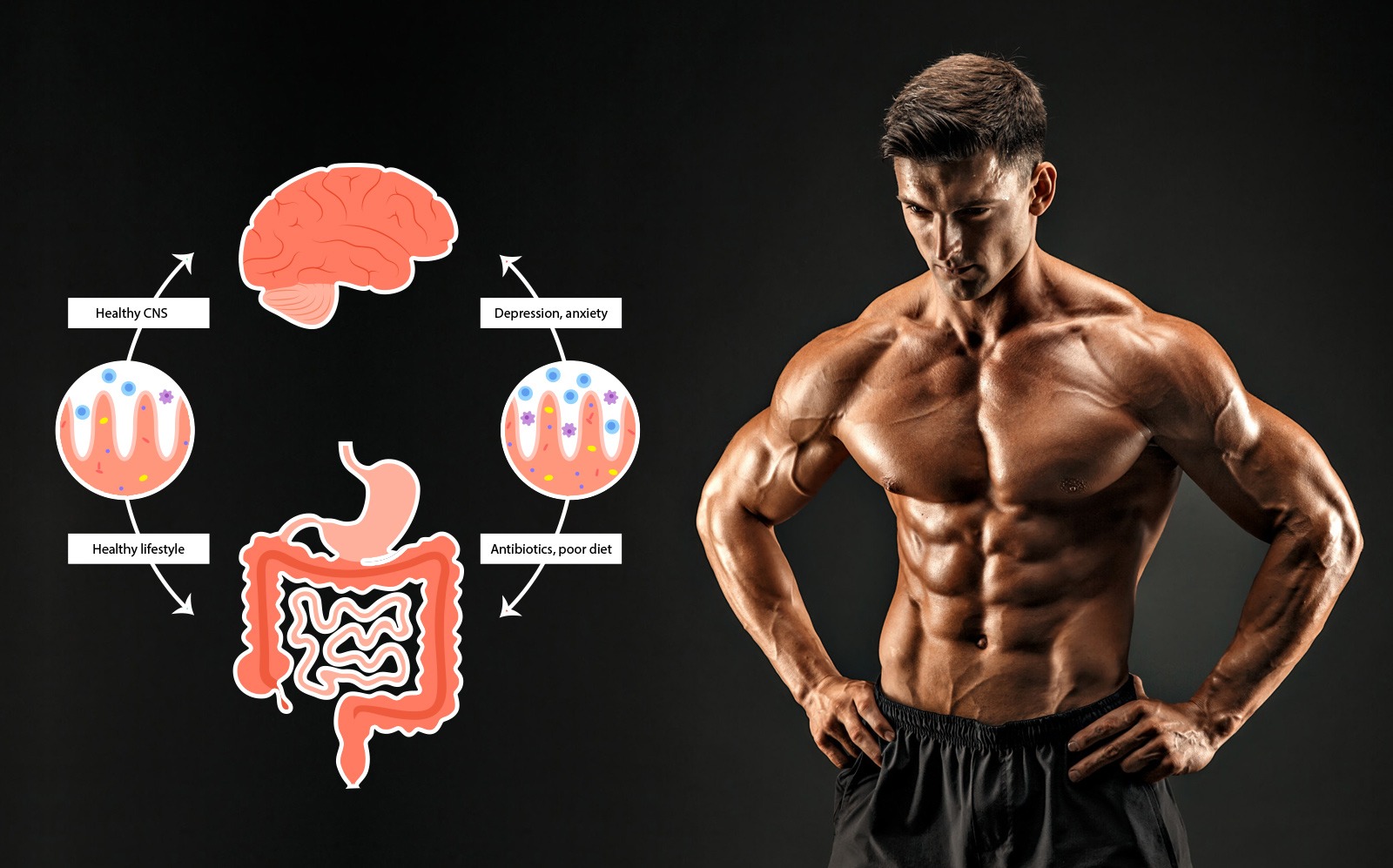
Foods That Fight Belly Fat: What to Eat and What to Avoid
Achieving a reduction in belly fat involves not only regular physical activity but also mindful dietary choices. Certain foods can aid in burning abdominal fat, while others may contribute to its accumulation. Incorporating nutrient-rich foods such as whole grains, lean proteins, healthy fats, and fiber-rich vegetables can promote satiety, boost metabolism, and reduce overall calorie intake. Conversely, consuming high amounts of refined carbohydrates, sugary beverages, and trans fats can lead to
💪 Fitness Guru
24 min read · 26, Feb 2025

Introduction
Belly fat — also known as visceral fat — is more than just an aesthetic concern. It’s linked to various health risks, including heart disease, type 2 diabetes, and certain cancers. While regular exercise and a balanced lifestyle play crucial roles in losing tummy fat, your diet is a key factor in determining how quickly and effectively you shed those extra inches around your waist.
Certain foods can help burn belly fat by boosting your metabolism, regulating hormones, and keeping you full longer, while others can sabotage your efforts by increasing inflammation and adding unnecessary calories. In this detailed guide, we’ll explore the best foods to eat for losing belly fat, those to avoid, and how to create a sustainable eating plan that helps you achieve your fitness goals.
Why Diet Matters in Losing Belly Fat
Your body stores fat in two main forms: subcutaneous fat (under the skin) and visceral fat (around your organs). Visceral fat is particularly harmful because it produces inflammatory substances and hormones that affect your metabolism.
A proper diet can:
- Reduce inflammation
- Balance blood sugar levels
- Boost metabolism
- Curb cravings and overeating
Let’s break down the foods that can help fight belly fat and those that you should cut back on.
Foods That Help Fight Belly Fat
- Avocados Rich in healthy monounsaturated fats, avocados help reduce inflammation and prevent belly fat accumulation. They also keep you full longer, reducing the urge to snack.
- Leafy Greens (Spinach, Kale, Lettuce) Low in calories but high in fiber, leafy greens improve digestion and reduce bloating. They are also packed with vitamins and minerals that support metabolism.
- Eggs Eggs are a great source of protein, which helps build muscle and boost metabolism. Eating protein-rich foods can also reduce hunger hormones and stabilize blood sugar levels.
- Berries (Blueberries, Raspberries, Strawberries) Berries are full of antioxidants and fiber, which help combat inflammation and control blood sugar spikes, both crucial for reducing belly fat.
- Greek Yogurt High in protein and probiotics, Greek yogurt promotes gut health, reduces bloating, and keeps you full.
- Fatty Fish (Salmon, Mackerel, Sardines) Rich in omega-3 fatty acids, fatty fish reduces inflammation and lowers cortisol levels — a stress hormone linked to belly fat.
- Green Tea Green tea contains catechins, antioxidants that help boost metabolism and burn fat. Drinking a cup or two a day can support your weight loss efforts.
- Chia Seeds and Flaxseeds These tiny seeds are high in fiber, omega-3s, and protein, helping you stay full longer and reduce belly fat.
- Whole Grains (Oats, Quinoa, Brown Rice) Whole grains are fiber-rich, keeping your digestive system in check and curbing hunger.
- Nuts (Almonds, Walnuts) Nuts provide a mix of protein, fiber, and healthy fats, helping control appetite and reducing belly fat over time.
Foods to Avoid for Losing Belly Fat
- Sugary Drinks (Sodas, Sweetened Teas, Energy Drinks) Liquid calories from sugary drinks spike blood sugar levels and lead to fat accumulation, especially in the belly.
- Refined Carbs (White Bread, Pasta, Pastries) These foods are stripped of fiber and nutrients, causing rapid blood sugar spikes and increasing fat storage.
- Trans Fats (Fried Foods, Margarine, Processed Snacks) Trans fats trigger inflammation and are directly linked to increased belly fat.
- Alcohol (Beer, Cocktails, Wine) Alcohol contains empty calories and affects your metabolism, making it harder to burn fat.
- Processed Snacks (Chips, Crackers, Candy Bars) Loaded with salt, sugar, and unhealthy fats, processed snacks promote belly fat by increasing calorie intake without providing any nutrition.
- Artificial Sweeteners (Aspartame, Sucralose) These can disrupt gut bacteria and increase cravings for sweet foods.
- Fast Food (Burgers, Fries, Pizza) High in calories, trans fats, and sodium, fast food contributes to weight gain and belly fat.
- Ice Cream and Desserts Loaded with sugar and unhealthy fats, these treats spike blood sugar and promote fat storage.
- Processed Meats (Sausages, Bacon, Hot Dogs) These meats are high in saturated fats and sodium, contributing to inflammation and belly fat.
- White Rice While not inherently bad, white rice lacks fiber and can cause blood sugar spikes, so it’s better to opt for brown rice or quinoa.
Creating a Belly-Fat-Burning Meal Plan
To effectively lose belly fat, focus on creating a balanced diet plan that includes:
- Protein: Helps build muscle and boost metabolism (eggs, fish, chicken, tofu).
- Fiber: Keeps you full and regulates digestion (fruits, vegetables, whole grains).
- Healthy Fats: Reduce inflammation and curb hunger (avocados, nuts, olive oil).
- Complex Carbs: Provide energy without blood sugar spikes (sweet potatoes, quinoa).
Sample Meal Plan:
- Breakfast: Avocado toast with a boiled egg and spinach smoothie
- Snack: Greek yogurt with berries and chia seeds
- Lunch: Grilled salmon with quinoa and steamed broccoli
- Snack: A handful of almonds and green tea
- Dinner: Chicken stir-fry with brown rice and mixed vegetables
Conclusion
Losing belly fat involves more than just exercise — your diet plays a critical role. By incorporating foods that burn belly fat and avoiding those that promote fat storage, you can achieve a leaner waistline and improve your overall health. Remember, consistency is key. Focus on eating whole, nutritious foods, stay hydrated, and pair your diet with regular physical activity. Sustainable changes over time will lead to lasting results.
Managing belly fat effectively requires a balanced diet rich in whole grains, lean proteins, healthy fats, and fiber-rich vegetables, while limiting the intake of refined carbohydrates, sugary beverages, trans fats, and excessive alcohol. Making informed dietary choices, combined with regular physical activity, can lead to a reduction in abdominal fat and improved overall health.
Q&A Section:
Q1: What foods are effective in reducing belly fat?
Ans: Foods that can help reduce belly fat include:
- Whole Grains: Oats, brown rice, quinoa, and whole wheat bread are rich in fiber, aiding in satiety and reducing overall calorie intake.
- Lean Proteins: Sources like chicken, fish, legumes, and low-fat dairy products can increase metabolism and reduce appetite.
- Healthy Fats: Avocados, nuts, seeds, and olive oil provide monounsaturated and polyunsaturated fats that can help decrease visceral fat.
- Fiber-Rich Vegetables: Leafy greens, broccoli, and peppers are low in calories and high in fiber, promoting fullness.
- Probiotic-Rich Foods: Yogurt and kefir contain beneficial bacteria that support gut health and may aid in weight management.
Q2: Which foods should be avoided to prevent belly fat accumulation?
Ans: To prevent belly fat gain, it's advisable to limit:
- Refined Carbohydrates: White bread, pastries, and sugary cereals can spike blood sugar levels and increase fat storage.
- Sugary Beverages: Sodas, energy drinks, and sweetened coffees are high in empty calories and can lead to fat accumulation.
- Trans Fats: Found in fried foods, baked goods, and processed snacks, trans fats can increase abdominal fat and inflammation.
- Excessive Alcohol: High alcohol intake is associated with increased belly fat and other health issues.
Q3: How do whole grains contribute to belly fat loss?
Ans: Whole grains retain all parts of the grain kernel, providing essential nutrients and fiber. This fiber aids in keeping you full longer, regulates blood sugar levels, and reduces overall care intake, contributing to belly fat loss.
Q4: Why are trans fats detrimental to abdominal fat levels?
Ans: Trans fats can cause inflammation and may lead to obesity, including increased belly fat. They are often found in processed and fried foods. Avoiding trans fats can help reduce abdominal fat and improve overall health.
Q5: Can probiotic-rich foods aid in reducing belly fat?
Ans: Yes, probiotic-rich foods like yogurt and kefir contain beneficial bacteria that support gut health. A healthy gut microbiome is linked to improved digestion and may aid in weight management, including reducing belly fat.
Q6: What role does protein play in managing belly fat?
Ans: Protein helps regulate appetite by increasing feelings of fullness and reducing hunger hormones. Incorporating lean proteins into your diet can aid in reducing overall calorie intake and promote belly fat loss.
Q7: How does alcohol consumption influence belly fat?
Ans: Excessive alcohol intake can lead to increased calorie consumption and fat storage, particularly in the abdominal area. Moderating alcohol consumption can help prevent belly fat accumulation.
Q8: Are there specific fruits that help combat belly fat?
Ans: Fruits like berries are rich in antioxidants and fiber, which can aid in reducing belly fat. They help regulate blood sugar levels and promote satiety.
Q9: Why is it important to avoid sugary beverages for belly fat reduction?
Ans: Sugary beverages are high in empty calories and can lead to increased fat storage, especially in the abdominal area. Replacing them with water or unsweetened drinks can reduce calorie intake and aid in belly fat loss.
Q10: How does fiber intake influence abdominal fat?
Ans: A higher intake of fiber, particularly soluble fiber, is linked to reduced belly fat. Fiber slows digestion, promotes fullness, and can decrease overall calorie consumption.
Similar Articles
Find more relatable content in similar Articles

The Science of Breathwork: Fitness Beyond Muscles...
Exploring how conscious contro.. Read More

Sweat Science – What Your Sweat Tells About Your Fitness Lev..
Sweat is more than a sign of e.. Read More

Microbiome and Muscle: Gut Health as a Hidden Fitness Tool...
Unlock the hidden potential of.. Read More

Fitness in Tiny Apartments – Creative Space-Saving Workouts...
In today’s urban lifestyle, co.. Read More
© 2024 Copyrights by rFitness. All Rights Reserved.